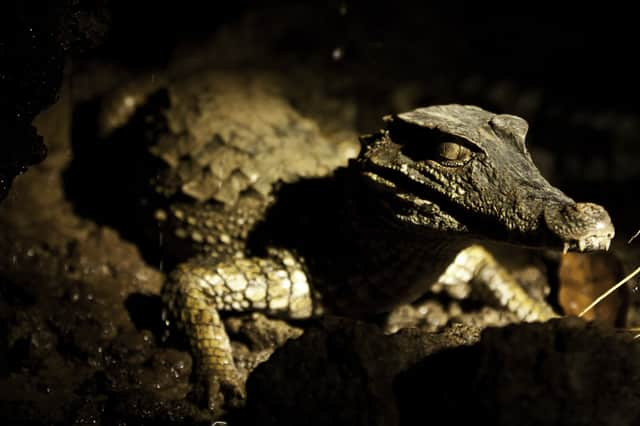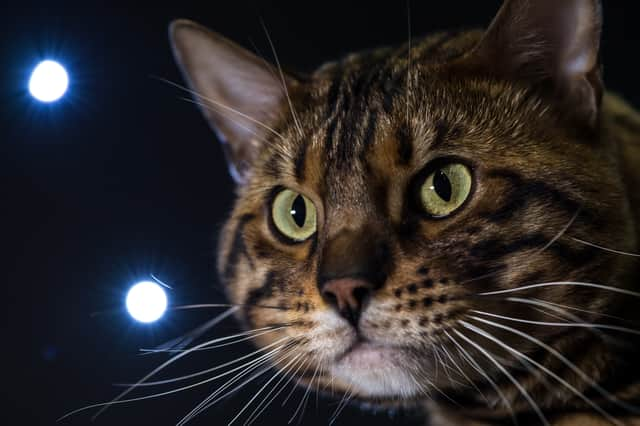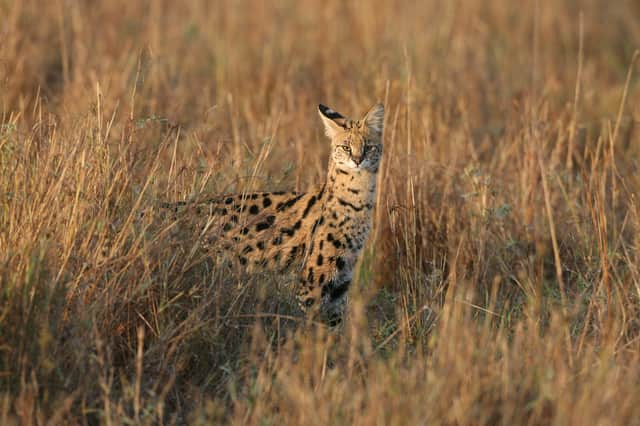Crocodile, wild cat and Bengal amongst 'dangerous animals' allowed to live in South Yorkshire homes
and live on Freeview channel 276
Multiple dangerous wild animals are privately kept by people in South Yorkshire, new figures show.
Wildlife charity the Born Free Foundation said improved regulation is needed, after its research found thousands of wild animals are owned privately across Great Britain.
Advertisement
Hide AdAdvertisement
Hide AdFigures obtained by the charity from freedom of information requests sent to councils reveal there are two mammals and one reptile covered by dangerous wild animal licences across South Yorkshire.
The licences are for a dwarf caiman crocodile in Sheffield, and a bengal cat and an African serval cat in Rotherham.
Chris Lewis, Born Free's captivity research officer said: "The Dangerous Wild Animals Act was intended to make the keeping of such animals categorised as 'dangerous' a wholly exceptional circumstance.
"However, Born Free’s ongoing research paints a very different picture."


Advertisement
Hide AdAdvertisement
Hide AdHe added regulations on the keeping and trading of wild animals kept as pets are "in urgent need of review".
Across Great Britain, the charity found over 2,700 dangerous wild animals were licenced to be owned privately. They include more than 200 wild cats and 250 primates.
It estimates there are also 400 venomous snakes "kept in British homes", more than 10 times the number in zoos.


Local authorities in Yorkshire and the Humber issued licences for over 100 dangerous wild animals including rattlesnakes, crocodiles, lemurs and wild cats.
Advertisement
Hide AdAdvertisement
Hide AdMr Lewis added regulations on the keeping and trading of wild animals kept as pets are "in urgent need of review".
Dr Mark Jones, the charity’s head of policy said: "It is unbelievable that, in this day and age, so many dangerous animals, including big cats, large primates, crocodiles and venomous snakes, continue to be legally kept in people’s homes in the UK.


"Increasing demand for and trade in all kinds of wild animals as exotic pets puts owners and the wider public at risk of injury or disease," he added.
"It also results in serious animal suffering, and the demand increases the pressure on many wild populations which are often already under threat."
Advertisement
Hide AdAdvertisement
Hide AdA Department for Environment, Food and Rural Affairs spokesperson said anyone wishing to keep an animal under the Dangerous Wild Animals Act must be vetted and apply for a licence which sets out conditions on caring for the animal.
They added: "We keep this legislation under regular review to ensure it remains effective in keeping the public safe."
They said the Government increased the maximum prison sentence for animal cruelty to five years in 2021, and added it is currently bringing forward legislation to prohibit primates being kept as domestic pets.
Comment Guidelines
National World encourages reader discussion on our stories. User feedback, insights and back-and-forth exchanges add a rich layer of context to reporting. Please review our Community Guidelines before commenting.